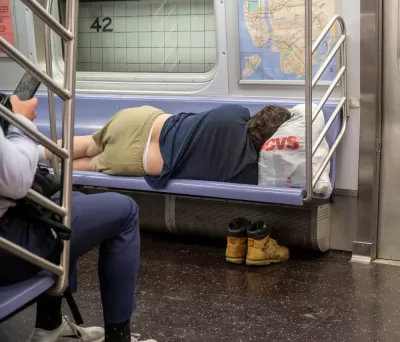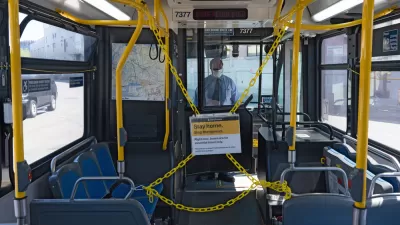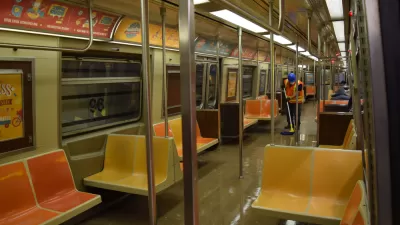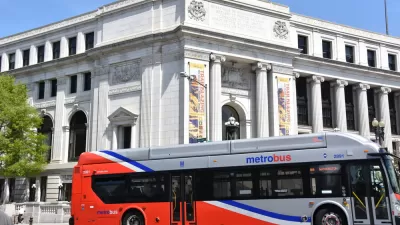With ridership down to 10,000 people per night, and numerous homeless people taking up residence on the subway, New York will no longer run overnight subway service for the foreseeable future.

"The MTA will soon cease overnight subway service, an unprecedented disruption that will allow crews to disinfect trains more frequently to help slow the spread of coronavirus," reports Jake Offenhartz.
"In a joint press conference on Thursday, Governor Andrew Cuomo and Mayor Bill de Blasio said that subways will not run between the hours of 1 a.m. and 5 a.m. for the duration of the pandemic. The indefinite shutdown will begin the morning of May 6th."
The news comes as subway ridership has plummeted by 92 percent during the pandemic, and recent controversies have erupted over the MTA's handling of homeless people using the subway system for shelter during the pandemic. While announcing the service changes, Mayor de Blasio cited the homelessness issue as one challenge that would be easier to address by suspending overnight service.
To make up for the lost service, the "MTA will provide buses, for-hire vehicles and 'dollar vans' for essential workers traveling at night," according to Offenhartz.
FULL STORY: MTA Will End Overnight Subway Service For Duration Of Pandemic

Alabama: Trump Terminates Settlements for Black Communities Harmed By Raw Sewage
Trump deemed the landmark civil rights agreement “illegal DEI and environmental justice policy.”

Planetizen Federal Action Tracker
A weekly monitor of how Trump’s orders and actions are impacting planners and planning in America.

The 120 Year Old Tiny Home Villages That Sheltered San Francisco’s Earthquake Refugees
More than a century ago, San Francisco mobilized to house thousands of residents displaced by the 1906 earthquake. Could their strategy offer a model for the present?

In Both Crashes and Crime, Public Transportation is Far Safer than Driving
Contrary to popular assumptions, public transportation has far lower crash and crime rates than automobile travel. For safer communities, improve and encourage transit travel.

Report: Zoning Reforms Should Complement Nashville’s Ambitious Transit Plan
Without reform, restrictive zoning codes will limit the impact of the city’s planned transit expansion and could exclude some of the residents who depend on transit the most.

Judge Orders Release of Frozen IRA, IIJA Funding
The decision is a victory for environmental groups who charged that freezing funds for critical infrastructure and disaster response programs caused “real and irreparable harm” to communities.
Urban Design for Planners 1: Software Tools
This six-course series explores essential urban design concepts using open source software and equips planners with the tools they need to participate fully in the urban design process.
Planning for Universal Design
Learn the tools for implementing Universal Design in planning regulations.
Clanton & Associates, Inc.
Jessamine County Fiscal Court
Institute for Housing and Urban Development Studies (IHS)
City of Grandview
Harvard GSD Executive Education
Toledo-Lucas County Plan Commissions
Salt Lake City
NYU Wagner Graduate School of Public Service





























